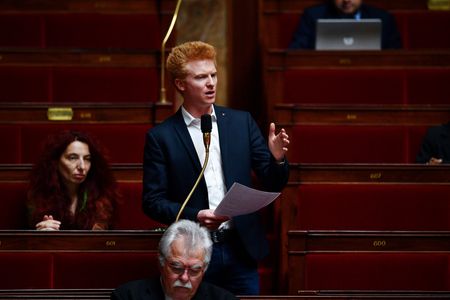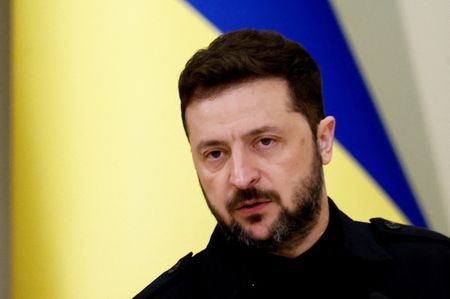By Michel Rose and Elizabeth Pineau
PARIS (Reuters) -France’s Socialist Party and the hard-left La France Insoumise (LFI) party reached an agreement in principle on Wednesday to form an alliance for June’s parliamentary election.
The coalition pact, which the Greens and Communists agreed to earlier this week, is an attempt to deprive Macron of a majority in parliament in the June 12-19 vote and block his pro-business agenda, after he was re-elected president in April.
“We can and will beat Emmanuel Macron and we can do it with a majority to govern for a radical programme,” LFI lawmaker Adrien Quatennens told Franceinfo radio.
If the agreement between the LFI and the Socialists is confirmed, the French left will be united for the first time in 20 years.
The deal was shaped under the leadership of LFI’s firebrand chief Jean-Luc Melenchon, who broke from the Socialist Party in 2008 after failing to dilute its pro-European Union stance.
He wants to “disobey” the bloc’s rules on budget and competition issues and challenge its free-market principles.
A source in the Socialist Party (PS) said that there was agreement on who would run in what constituency and on overall strategy, but that negotiators still needed to finalise details of the joint programme itself.
In particular, the wording on what the platform for the new alliance, which will run under the banner of the “Social and Ecological People’s Union”, would say on Europe was still being debated, sources said.
The deal would then need to be approved by the PS’s national committee.
“COMPLICATED”
Policies of the new alliance include plans to lower the retirement age to 60, raise the minimum wage and cap prices on essential products.
If confirmed Melenchon’s success in striking a deal with the Socialists, so far the dominant force on the left, would mark a turning point for a party that gave the country two presidents since World War Two and has been a driving force for European integration.
PS veterans, including former party leader Jean-Christophe Cambadelis, have already called on fellow members to block the deal, saying it could mark the end of a pro-EU force on the left.
“It will be complicated to get it approved in the national committee,” Corinne Narassiguin, a former PS lawmaker, told Reuters.
But the Socialists had little leeway in the talks. Their candidate, Paris Mayor Anne Hidalgo, garnered a meagre 1.75% of votes cast in last month’s presidential ballot. However, they still control many local authorities.
In a sign of the Socialist Party’s collapse, a source close to the talks said the deal – which sees only one lawmaker from each party that joins the alliance run in any constituency – foresees that the PS would only have 70 candidates in mainland France, and possibly a few more in oversees territories.
The French lower house has 577 lawmakers.
A recent Harris Interactive poll showed a united left and an alliance between Macron’s party and the conservatives neck and neck, with each garnering 33% of the legislative vote. However, in France’s two round election system, projections show this could still translate into a majority of seats for Macron.
(Additional reporting by Elizabeth Pineau, Tassilo Hummel, Geert de Clercq; writing by Michel Rose and Ingrid Melander; Editing by Raissa Kasolowsky and Alex Richardson)









